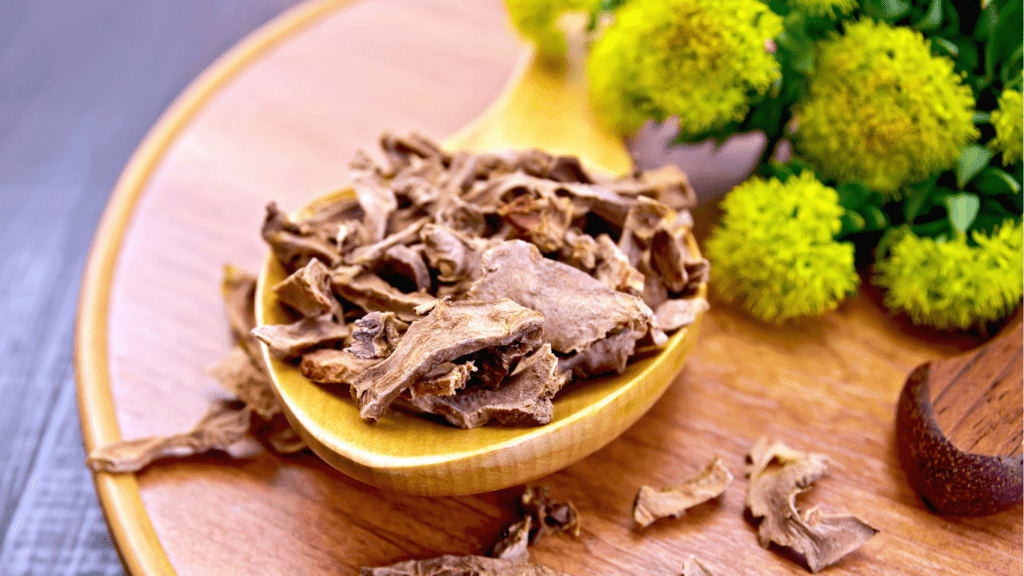Life can feel like a whirlwind, and our bodies often bear the brunt of stress. That’s where adaptogens come in—these natural powerhouses have been making waves in nutrition for their ability to help us adapt to stress and restore balance. From ancient herbal remedies to modern wellness routines, adaptogens are gaining attention for their unique role in fueling resilience.
What Are Adaptogens?
Adaptogens are bioactive compounds in plants that support the body’s ability to manage stress. These substances work by fostering balance in physiological processes.
Defining Adaptogens
Adaptogens are natural substances that increase the body’s resistance to:
- physical
- chemical
- biological stressors
They enhance homeostasis, ensuring the body’s systems perform efficiently during challenging conditions. Common adaptogens include ashwagandha, rhodiola, and ginseng.
To qualify as an adaptogen, a substance must meet three criteria: it improves the body’s stress response, restores balance without overstimulation, and is non-toxic at normal doses. Notably, adaptogens act on the hypothalamic-pituitary-adrenal (HPA) axis, modulating stress hormones like cortisol.
Historical Use of Adaptogens in Different Cultures
Adaptogens have roots in traditional medicine systems worldwide. In Ayurveda, ashwagandha has been valued for over 3,000 years for promoting energy and stress relief. Traditional Chinese Medicine (TCM) features adaptogens like ginseng and Schisandra to restore qi and boost vitality.
Siberian rhodiola has been used by Arctic communities to combat fatigue in frigid climates. Similarly, reishi mushrooms have held significance in East Asia as a “mushroom of immortality” for enhancing longevity and immune support.
These cultural practices highlight adaptogens’ enduring role in natural healing systems.
How Adaptogens Impact Nutrition and Health

Adaptogens influence nutrition and health by enhancing the body’s resilience to stress, supporting energy levels, and promoting overall balance. These natural substances help optimize mental, physical, and immune functions through their complex bioactive compounds.
Stress Reduction and Mental Clarity
- Adaptogens regulate stress response mechanisms by modulating cortisol levels and supporting the HPA axis.
- Ashwagandha, for example, reduces cortisol production, which improves mood and alleviates stress symptoms.
- Rhodiola enhances mental clarity and reduces mental fatigue, making it a valuable tool for focus during stressful periods.
- These plants help maintain cognitive equilibrium, even under extended periods of physical or emotional strain.
Enhancing Physical Endurance
Adaptogens improve physical performance by increasing energy delivery and reducing fatigue. Siberian ginseng enhances oxygen utilization in muscles, aiding stamina and recovery. Cordyceps boosts ATP production, supporting sustained energy levels for endurance activities. These effects reflect their ability to adapt metabolic functions to meet higher physical demands, making them beneficial for athletes and active individuals.
Supporting Immune Function
Adaptogens strengthen the immune system by enhancing the body’s natural defense mechanisms. Reishi mushrooms promote immune cell activity, particularly macrophages and T-cells, optimizing the system’s response to pathogens. Schisandra offers antioxidant support, mitigating oxidative stress that weakens immunity. These properties contribute to long-term health resilience, especially during periods of seasonal challenges or prolonged stress.
Key Adaptogens to Incorporate Into Your Diet
Incorporating adaptogens into nutrition helps improve stress resilience, energy, and overall balance. These powerful herbs and fungi support physical and mental well-being naturally.
1. Ashwagandha: Balancing Energy and Calm
Ashwagandha is a cornerstone adaptogen in Ayurveda, renowned for its dual ability to energize and relax. It lowers cortisol levels, promoting calmness and reducing stress. At the same time, it enhances physical stamina and mental alertness. Doses of 300–600 mg of ashwagandha extract daily have been shown to improve sleep quality and reduce anxiety symptoms, making it an excellent choice for restoring equilibrium. Ashwagandha works well in teas, smoothies, or capsule supplements.
2. Rhodiola Rosea: Boosting Focus and Stamina
Rhodiola Rosea is celebrated for improving focus and combating fatigue. It stimulates the central nervous system, heightening concentration and reducing mental burnout. Studies show that 200–600 mg of rhodiola extract daily can reduce perceived fatigue while enhancing task performance. It also enhances oxygen utilization, benefiting physical endurance and recovery. This adaptogen integrates seamlessly into nutrition through tinctures, powdered forms, or energy bars.
3. Holy Basil: Reducing Stress and Inflammation
Holy basil, or tulsi, is a potent adaptogen that alleviates stress and supports the immune system. Rich in anti-inflammatory compounds like eugenol, it soothes stress-induced inflammation while balancing cortisol levels. Consuming 300–1200 mg of holy basil extract or drinking tulsi tea daily enhances mood, reduces stress, and provides antioxidant protection. This adaptogen combines well with herbal infusions or is consumed on its own as a tea.
Ways to Include Adaptogens in Your Daily Nutrition
Incorporating adaptogens into daily meals is simple and versatile. These natural substances can enhance both nutritional value and stress resilience when added to everyday routines.
Adaptogen Teas and Smoothies
Drinking teas or blending smoothies offers an easy way to consume adaptogens. Ashwagandha root or tulsi leaves can be steeped to create calming teas. Powdered adaptogens, like maca or reishi, mix seamlessly into smoothies, complementing fruits and plant-based milks. Adding 1–2 teaspoons of powdered adaptogens to morning or post-workout shakes provides stress relief, energy, and focus.
Capsules and Supplements
Capsules ensure precise dosing and convenient consumption. Standardized extracts of rhodiola, ginseng, and holy basil are available in stores. For regular use, I recommend choosing supplements with clinically supported dosages, such as 300–600 mg of ashwagandha or 200–400 mg of rhodiola. These pre-measured options fit easily into any daily vitamin routine.
Cooking with Adaptogen-Infused Ingredients
Incorporating adaptogens into cooking creates nutrient-rich meals. Adaptogen-infused oils or powders can flavor soups, stews, or baked goods. For example, reishi powder pairs well with cocoa in desserts, while culinary herbs like holy basil add depth to savory recipes. Using 1–2 teaspoons per dish ensures effectiveness without altering flavor significantly.





